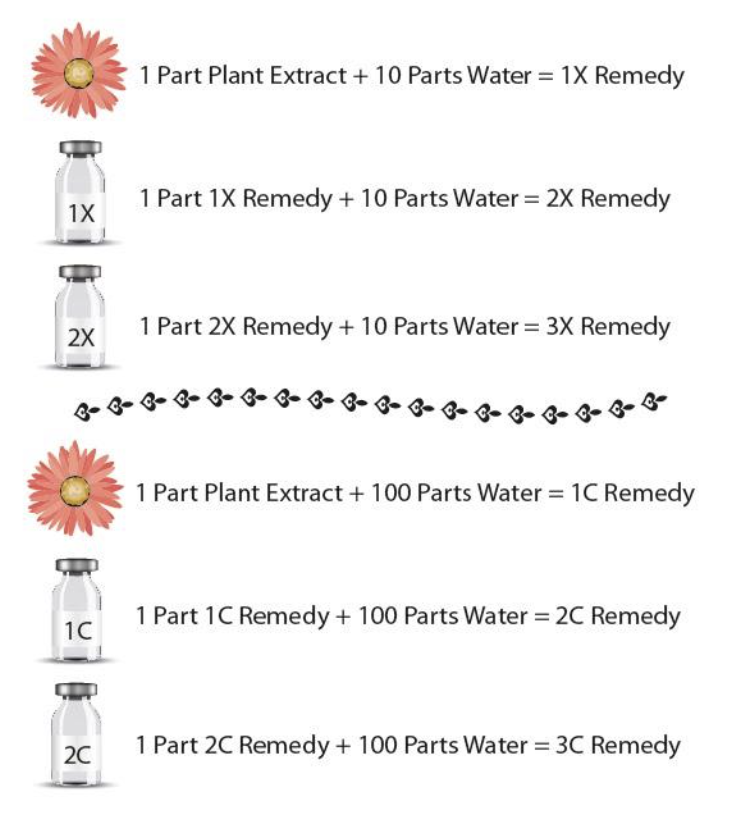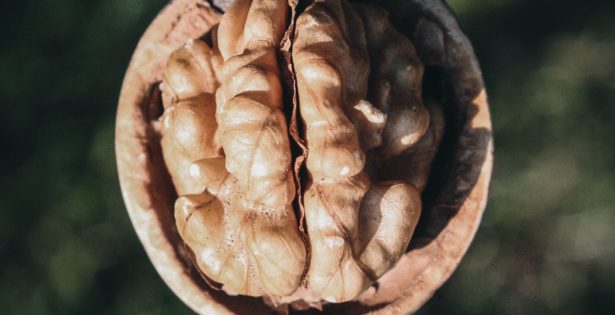WP_Query Object
(
[query] => Array
(
[category__in] => Array
(
[0] => 67
[1] => 66
[2] => 64
)
[post__not_in] => Array
(
[0] => 8447
)
[posts_per_page] => 50
[ignore_sticky_posts] => 1
[orderby] => desc
[_shuffle_and_pick] => 3
)
[query_vars] => Array
(
[category__in] => Array
(
[0] => 67
[1] => 66
[2] => 64
)
[post__not_in] => Array
(
[0] => 8447
)
[posts_per_page] => 50
[ignore_sticky_posts] => 1
[orderby] => desc
[_shuffle_and_pick] => 3
[error] =>
[m] =>
[p] => 0
[post_parent] =>
[subpost] =>
[subpost_id] =>
[attachment] =>
[attachment_id] => 0
[name] =>
[pagename] =>
[page_id] => 0
[second] =>
[minute] =>
[hour] =>
[day] => 0
[monthnum] => 0
[year] => 0
[w] => 0
[category_name] => creative_living
[tag] =>
[cat] => 67
[tag_id] =>
[author] =>
[author_name] =>
[feed] =>
[tb] =>
[paged] => 0
[meta_key] =>
[meta_value] =>
[preview] =>
[s] =>
[sentence] =>
[title] =>
[fields] =>
[menu_order] =>
[embed] =>
[category__not_in] => Array
(
)
[category__and] => Array
(
)
[post__in] => Array
(
)
[post_name__in] => Array
(
)
[tag__in] => Array
(
)
[tag__not_in] => Array
(
)
[tag__and] => Array
(
)
[tag_slug__in] => Array
(
)
[tag_slug__and] => Array
(
)
[post_parent__in] => Array
(
)
[post_parent__not_in] => Array
(
)
[author__in] => Array
(
)
[author__not_in] => Array
(
)
[search_columns] => Array
(
)
[suppress_filters] =>
[cache_results] => 1
[update_post_term_cache] => 1
[update_menu_item_cache] =>
[lazy_load_term_meta] => 1
[update_post_meta_cache] => 1
[post_type] =>
[nopaging] =>
[comments_per_page] => 50
[no_found_rows] =>
[order] => DESC
)
[tax_query] => WP_Tax_Query Object
(
[queries] => Array
(
[0] => Array
(
[taxonomy] => category
[terms] => Array
(
[0] => 67
[1] => 66
[2] => 64
)
[field] => term_id
[operator] => IN
[include_children] =>
)
)
[relation] => AND
[table_aliases:protected] => Array
(
[0] => wp_term_relationships
)
[queried_terms] => Array
(
[category] => Array
(
[terms] => Array
(
[0] => 67
[1] => 66
[2] => 64
)
[field] => term_id
)
)
[primary_table] => wp_posts
[primary_id_column] => ID
)
[meta_query] => WP_Meta_Query Object
(
[queries] => Array
(
)
[relation] =>
[meta_table] =>
[meta_id_column] =>
[primary_table] =>
[primary_id_column] =>
[table_aliases:protected] => Array
(
)
[clauses:protected] => Array
(
)
[has_or_relation:protected] =>
)
[date_query] =>
[request] =>
SELECT SQL_CALC_FOUND_ROWS wp_posts.ID
FROM wp_posts LEFT JOIN wp_term_relationships ON (wp_posts.ID = wp_term_relationships.object_id)
WHERE 1=1 AND wp_posts.ID NOT IN (8447) AND (
wp_term_relationships.term_taxonomy_id IN (64,66,67)
) AND ((wp_posts.post_type = 'post' AND (wp_posts.post_status = 'publish' OR wp_posts.post_status = 'acf-disabled')))
AND ID NOT IN
(SELECT `post_id` FROM wp_postmeta
WHERE `meta_key` = '_pilotpress_level'
AND `meta_value` IN ('','employee')
AND `post_id` NOT IN
(SELECT `post_id` FROM wp_postmeta
WHERE `meta_key` = '_pilotpress_level'
AND `meta_value` IN ('' )))
GROUP BY wp_posts.ID
ORDER BY wp_posts.post_date DESC
LIMIT 0, 50
[posts] => Array
(
[0] => WP_Post Object
(
[ID] => 8858
[post_author] => 3
[post_date] => 2022-11-18 20:14:07
[post_date_gmt] => 2022-11-18 20:14:07
[post_content] =>
Gratitude is the understanding that many millions of things come together and live together and mesh together and breathe together in order for us to take even one more breath of air, that the underlying gift of life and incarnation as a living, participating human being is a privilege; that we are miraculously, part of something, rather than nothing. – David Whyte
Coincidentally, I encountered this quote shortly after hearing a lecture on happiness in which the speaker asserted that when we truly recognize our privilege, we readily feel enthusiastic and grateful about whatever we’re engaged in, work included.
It’s easy to forget to be grateful though, just as it’s natural to expect life to continue in roughly the way it always has, with ample clean air, water, food, electricity, safety, and everything else that supports us. Sometimes it’s not until we experience contrast that we recognize our privilege.
Having a period of sickness makes us appreciate our health. Smoky air makes us appreciate fresh air – and firefighters and rain. Traveling in an area with mediocre food options makes us appreciate farmers’ markets and well-stocked grocery stores. All of our adversity, including even our day-to-day micro-adversities, can become prompts to recognize what’s still working and good in our life. You can even try making a rule for yourself that every time you complain about something – even just to yourself – you follow it with a statement of gratitude.
When traffic is bad, what’s good? When there’s pain in your back, what parts of your body still work well and feel okay?
Of course, we don’t need to wait for suffering in order to pay attention to our gifts. It’s just that suffering – especially when it’s really painful – has a way of capturing our attention. The key is the paying attention, and we’re in the habit of letting our attention go to whatever’s loudest or most dramatic, like media, interpersonal conflict, and worry.
Sometimes we need to grab our attention and put it on something else. And when I say “sometimes” I mean virtually all the time – choosing intentionally what we’re putting our attention on. Might I recommend a good place to put it: on the total experience that is happening right here, right now. Your breath and the air entering and exiting your lungs. What it feels like in your body. What you’re currently engaged in. The land you’re sitting on. The beating of your heart. The sun illuminating the world. The soft clothes on your skin. The feeling of the earth’s gravity acting on you.
We want to feel spontaneous gratitude, the exalted kind that comes to us with strong emotion, rather than needing to prompt ourselves to think of something to be grateful for. But the chosen form isn’t any less real. And it has the same benefits of promoting happiness, broadening our perspective, and focusing our energy on good things.
I am grateful for you.
Love,
Peter & Everyone at the Dragontree
[post_title] => Gratitude
[post_excerpt] =>
[post_status] => publish
[comment_status] => open
[ping_status] => open
[post_password] =>
[post_name] => gratitude-2
[to_ping] =>
[pinged] =>
[post_modified] => 2022-11-18 20:15:04
[post_modified_gmt] => 2022-11-18 20:15:04
[post_content_filtered] =>
[post_parent] => 0
[guid] => https://thedragontree.com/?p=8858
[menu_order] => 0
[post_type] => post
[post_mime_type] =>
[comment_count] => 0
[filter] => raw
[webinar_id] => 0
)
[1] => WP_Post Object
(
[ID] => 8663
[post_author] => 3
[post_date] => 2022-05-18 20:36:08
[post_date_gmt] => 2022-05-18 20:36:08
[post_content] =>
Unbeknownst to most Americans, the world is full of animists. According to Professor Stephen Asma of Columbia College Chicago, “Pretty much everywhere except Western Europe, the Middle East, and North America” is dominated by animistic cultures. Animism is the belief that everything has a soul or spiritual essence; not just living things, but also mountains, fire, the sky, the sea, and sometimes even words and human-made objects.
In practice, though, it’s more than just a belief. It’s a sensibility, a way of experiencing and interacting with the world. Animists relate to their surroundings with a certain intentionality, as if constantly among old friends.
To people in the developed world, such beliefs might seem primitive and superstitious. After all, who needs a world full of spirits when we have science? Science has given us explanations and inventions that have alleviated many hardships and dispelled so much fear.
But it hasn’t made us invincible or immune to fear. We’re still afraid of death, suffering, being alone, poverty, public humiliation, paper cuts, and so on. There’s little solace in science from these bugaboos.
Its other major shortcoming is that science has sucked the spirituality out of life. By reducing everything to cells and atoms, electromagnetic waves and neurotransmitters, it puts the whole phenomenal world beneath us. This promotes a certain feeling of ownership over the world – rather than a sense of belonging to it. If we put all our eggs into the science basket, life can seem random, lacking meaning and soul.
Science and Spirit aren’t mutually exclusive. But ever since early anthropologists looked down their noses at animistic cultures – seeing them as too dumb to know the difference between living and nonliving things, and giving their leaders justification to colonize and oppress them – the developed world has favored science as the ultimate authority. As we seek to right such wrongs, perhaps it’s worth considering not just what indigenous cultures lost, but what the oppressors also lost.
To an animist, the scientist is missing out on an entire plane of reality that’s beneath the surface and accessible only through an expansion of consciousness. To a scientist, the subjective reality of the animist’s consciousness is unmeasurable, untestable, unprovable, and therefore unscientific and even unreal.
What would be possible if we stopped using science to dominate or invalidate what we don’t understand? Can we concede – scientists included – that not everything is a scientific matter? This applies foremost to consciousness itself, which is entirely beyond the grasp of science, and arguably the only thing we know for certain to be real. We also know that humans yearn for a connection that’s beyond the ability of science to explain or provide.
You don’t need to be anti-science to be open to a spiritual reality. I say this as a scientist and animist.
If you’re open to it, I have a simple assignment for you to try this week. Consider this: how might your life be different if you treated your surroundings as if you were in relationship with them? Make it a lighthearted game.
What happens when you express gratitude to your bed, sheets, and pillow upon waking? What happens when you allow yourself to be in awe of the shimmering water that flows, as if by magic, from your showerhead? How does it feel to thank it for invigorating and purifying you? Does it feel any different to bless your food before eating it and thank it for giving itself to nourish you?
What is it like to thank your home for keeping you safe and comfortable? When you step outside, what happens when you experience the earth as the ever-present stability beneath your feet, supporting you and nurturing everything that grows upon it? What do you notice when you give names to the familiar trees or rocks in your neighborhood? How does it feel different to think of the sky as a beautiful, conscious dome over you versus your usual way? What changes when you think of all the animals you encounter as non-human people, each with an equally valid reason to be here as the human people you see?
And what happens when you listen and feel as if all these aspects of the world have something to communicate back to you?
When I say, “What happens?” I’m not (necessarily) asking, “Does your pillow respond, ‘Thanks for finally saying something! It was a pleasure to cradle your head all night!’?” More importantly, I’m asking, how does it make you feel to relate to the world in this way in comparison to your usual way? And if the answer is, “good” or “better” or “playful,” then keep going with it.
Be well,
Dr. Peter Borten
[post_title] => What if You Were Always Surrounded by Friends?
[post_excerpt] =>
[post_status] => publish
[comment_status] => open
[ping_status] => open
[post_password] =>
[post_name] => what-if-you-were-always-surrounded-by-friends
[to_ping] =>
[pinged] =>
[post_modified] => 2022-05-23 03:46:56
[post_modified_gmt] => 2022-05-23 03:46:56
[post_content_filtered] =>
[post_parent] => 0
[guid] => https://thedragontree.com/?p=8663
[menu_order] => 0
[post_type] => post
[post_mime_type] =>
[comment_count] => 10
[filter] => raw
[webinar_id] => 0
)
[2] => WP_Post Object
(
[ID] => 8850
[post_author] => 1
[post_date] => 2022-11-04 22:53:33
[post_date_gmt] => 2022-11-04 22:53:33
[post_content] =>
One of the earliest inspirations that prompted me to go into medicine was a book called The Science of Homeopathy by George Vithoulkas. Of all the many modalities of mainstream and alternative medicine, few are as widely used – or criticized – as homeopathy.
Most other medical systems are heteropathic or allopathic in their approach. Hetero means other or different, allo means opposite, and pathy means suffering or disease. So, both terms mean producing a condition that is incompatible with or antagonistic to the disease process. Today many people use the term “allopathic” in a negative sense to describe mainstream medicine, but if you take an anti-inflammatory herb such as turmeric for inflammation, or an antibacterial such as garlic for an infection, this is allopathic medicine.
Homeopathy is based on the idea that if a particular substance produces a certain reaction (e.g., ipecacuanha causes nausea and vomiting), minuscule quantities of that substance can treat that condition (e.g., homeopathic ipecacuanha alleviates nausea and vomiting). Homeo means like, so homeopathy means “like the disease” and it’s based on the principle that “like treats like.” Some other examples are the use of homeopathic coffee (Coffea cruda) to treat insomnia and agitation, homeopathic onion (Allium cepa) for red and watery eyes and nose, and homeopathic bee venom (Apis) for stings, swellings, and inflammation.
For what it’s worth, not all remedies work this way. In many cases, homeopathic preparations do the same thing the original substance does. The remedy Chamomilla, for instance, is homeopathic chamomile, and like the herb, it is used for digestive and emotional upset. Sometimes homeopathic versions are safer, gentler, more potent, or have a broader range of application. In the case of Chamomilla, it’s also used for teething, ear pain, and menstrual discomfort.
Homeopathic remedies are created through numerous successive dilutions of herbs, minerals, animal parts and occasionally other substances. When the original substance is diluted in ten parts of a solvent (water or alcohol), this is called an X dilution (X being the Roman numeral for ten). When the substance is diluted in one hundred parts of a solvent, this is a C dilution (C being the Roman numeral for hundred). Each time a dilution is made it is shaken in a specific way to transfer the substance to the solvent, and each successive dilution, though chemically weaker, is considered energetically more potent. I made this chart to explain the process:
 Many homeopathic remedies are made from highly toxic substances, like arsenic or deadly nightshade. In these cases, the original substance is so highly diluted that the amount of toxin in a resulting pill or tincture is infinitesimal. Often, it’s unlikely that there is even a single molecule of the original substance in the resulting medicine. This is precisely why opponents of homeopathy argue that it’s worthless and call it pseudoscience.
As a scientist, I completely understand this stance, but in my opinion, what occurs in the preparation of a homeopathic remedy is something we don’t yet have the science to explain. I believe the substance leaves some kind of energetic imprint on the solvent it is diluted in. We know from Masaru Emoto’s research on water that various substances and even human intention are capable of leaving a lasting mark on water molecules that’s evidenced in the different forms of ice crystals it forms when frozen. I believe a similar process occurs through diluting and shaking a substance in water, even when the substance is eventually removed.
I must admit, my own experience with homeopathy has been hit-or-miss. I’ve taken numerous remedies that did nothing perceptible. As to whether I chose the wrong remedy or it wasn’t medicinally effective, I’ll never know. But I have also had cases in which homeopathics were remarkably effective.
This has been especially true with babies and animals, and these are cases we could assume are relatively free from the influence of the placebo effect since the recipients are presumably unaware that they’re getting medicine. In particular, I have repeatedly had the experience of giving homeopathic teething tablets to babies that were inconsolable, and within minutes they were peaceful and sleepy. As a parent, I don’t care what the mechanism is as long as it’s safe and it works.
The safety factor is significant, particularly for children, pregnant women, and elderly or frail people. Not only are homeopathics virtually free of side effects, they also tend to have zero “load” on the system. That is, they don’t make you feel like you’re on a drug. Sometimes this may come at the expense of strength (e.g., homeopathic Chamomilla doesn’t approach the potency of Xanax), but there are cases when the top priority is a clean experience. I find this to be especially true in anxiety, when making someone feel drugged can occasionally intensify the anxiety.
Have you tried homeopathy? What did you think? Share with us in the comments section. I would love to hear about your experience.
Be well,
Dr. Peter Borten
Many homeopathic remedies are made from highly toxic substances, like arsenic or deadly nightshade. In these cases, the original substance is so highly diluted that the amount of toxin in a resulting pill or tincture is infinitesimal. Often, it’s unlikely that there is even a single molecule of the original substance in the resulting medicine. This is precisely why opponents of homeopathy argue that it’s worthless and call it pseudoscience.
As a scientist, I completely understand this stance, but in my opinion, what occurs in the preparation of a homeopathic remedy is something we don’t yet have the science to explain. I believe the substance leaves some kind of energetic imprint on the solvent it is diluted in. We know from Masaru Emoto’s research on water that various substances and even human intention are capable of leaving a lasting mark on water molecules that’s evidenced in the different forms of ice crystals it forms when frozen. I believe a similar process occurs through diluting and shaking a substance in water, even when the substance is eventually removed.
I must admit, my own experience with homeopathy has been hit-or-miss. I’ve taken numerous remedies that did nothing perceptible. As to whether I chose the wrong remedy or it wasn’t medicinally effective, I’ll never know. But I have also had cases in which homeopathics were remarkably effective.
This has been especially true with babies and animals, and these are cases we could assume are relatively free from the influence of the placebo effect since the recipients are presumably unaware that they’re getting medicine. In particular, I have repeatedly had the experience of giving homeopathic teething tablets to babies that were inconsolable, and within minutes they were peaceful and sleepy. As a parent, I don’t care what the mechanism is as long as it’s safe and it works.
The safety factor is significant, particularly for children, pregnant women, and elderly or frail people. Not only are homeopathics virtually free of side effects, they also tend to have zero “load” on the system. That is, they don’t make you feel like you’re on a drug. Sometimes this may come at the expense of strength (e.g., homeopathic Chamomilla doesn’t approach the potency of Xanax), but there are cases when the top priority is a clean experience. I find this to be especially true in anxiety, when making someone feel drugged can occasionally intensify the anxiety.
Have you tried homeopathy? What did you think? Share with us in the comments section. I would love to hear about your experience.
Be well,
Dr. Peter Borten
[post_title] => Homeopathy: What Is It and Does It Work?
[post_excerpt] =>
[post_status] => publish
[comment_status] => open
[ping_status] => open
[post_password] =>
[post_name] => homeopathy-what-is-it-and-does-it-work
[to_ping] =>
[pinged] =>
[post_modified] => 2022-11-04 22:53:33
[post_modified_gmt] => 2022-11-04 22:53:33
[post_content_filtered] =>
[post_parent] => 0
[guid] => https://thedragontree.com/?p=8850
[menu_order] => 0
[post_type] => post
[post_mime_type] =>
[comment_count] => 2
[filter] => raw
[webinar_id] => 0
)
)
[post_count] => 3
[current_post] => -1
[before_loop] => 1
[in_the_loop] =>
[post] => WP_Post Object
(
[ID] => 8858
[post_author] => 3
[post_date] => 2022-11-18 20:14:07
[post_date_gmt] => 2022-11-18 20:14:07
[post_content] =>
Gratitude is the understanding that many millions of things come together and live together and mesh together and breathe together in order for us to take even one more breath of air, that the underlying gift of life and incarnation as a living, participating human being is a privilege; that we are miraculously, part of something, rather than nothing. – David Whyte
Coincidentally, I encountered this quote shortly after hearing a lecture on happiness in which the speaker asserted that when we truly recognize our privilege, we readily feel enthusiastic and grateful about whatever we’re engaged in, work included.
It’s easy to forget to be grateful though, just as it’s natural to expect life to continue in roughly the way it always has, with ample clean air, water, food, electricity, safety, and everything else that supports us. Sometimes it’s not until we experience contrast that we recognize our privilege.
Having a period of sickness makes us appreciate our health. Smoky air makes us appreciate fresh air – and firefighters and rain. Traveling in an area with mediocre food options makes us appreciate farmers’ markets and well-stocked grocery stores. All of our adversity, including even our day-to-day micro-adversities, can become prompts to recognize what’s still working and good in our life. You can even try making a rule for yourself that every time you complain about something – even just to yourself – you follow it with a statement of gratitude.
When traffic is bad, what’s good? When there’s pain in your back, what parts of your body still work well and feel okay?
Of course, we don’t need to wait for suffering in order to pay attention to our gifts. It’s just that suffering – especially when it’s really painful – has a way of capturing our attention. The key is the paying attention, and we’re in the habit of letting our attention go to whatever’s loudest or most dramatic, like media, interpersonal conflict, and worry.
Sometimes we need to grab our attention and put it on something else. And when I say “sometimes” I mean virtually all the time – choosing intentionally what we’re putting our attention on. Might I recommend a good place to put it: on the total experience that is happening right here, right now. Your breath and the air entering and exiting your lungs. What it feels like in your body. What you’re currently engaged in. The land you’re sitting on. The beating of your heart. The sun illuminating the world. The soft clothes on your skin. The feeling of the earth’s gravity acting on you.
We want to feel spontaneous gratitude, the exalted kind that comes to us with strong emotion, rather than needing to prompt ourselves to think of something to be grateful for. But the chosen form isn’t any less real. And it has the same benefits of promoting happiness, broadening our perspective, and focusing our energy on good things.
I am grateful for you.
Love,
Peter & Everyone at the Dragontree
[post_title] => Gratitude
[post_excerpt] =>
[post_status] => publish
[comment_status] => open
[ping_status] => open
[post_password] =>
[post_name] => gratitude-2
[to_ping] =>
[pinged] =>
[post_modified] => 2022-11-18 20:15:04
[post_modified_gmt] => 2022-11-18 20:15:04
[post_content_filtered] =>
[post_parent] => 0
[guid] => https://thedragontree.com/?p=8858
[menu_order] => 0
[post_type] => post
[post_mime_type] =>
[comment_count] => 0
[filter] => raw
[webinar_id] => 0
)
[comment_count] => 0
[current_comment] => -1
[found_posts] => 273
[max_num_pages] => 6
[max_num_comment_pages] => 0
[is_single] =>
[is_preview] =>
[is_page] =>
[is_archive] => 1
[is_date] =>
[is_year] =>
[is_month] =>
[is_day] =>
[is_time] =>
[is_author] =>
[is_category] => 1
[is_tag] =>
[is_tax] =>
[is_search] =>
[is_feed] =>
[is_comment_feed] =>
[is_trackback] =>
[is_home] =>
[is_privacy_policy] =>
[is_404] =>
[is_embed] =>
[is_paged] =>
[is_admin] =>
[is_attachment] =>
[is_singular] =>
[is_robots] =>
[is_favicon] =>
[is_posts_page] =>
[is_post_type_archive] =>
[query_vars_hash:WP_Query:private] => dddafc1da58f431dde4a15c75a43938d
[query_vars_changed:WP_Query:private] =>
[thumbnails_cached] =>
[allow_query_attachment_by_filename:protected] =>
[stopwords:WP_Query:private] =>
[compat_fields:WP_Query:private] => Array
(
[0] => query_vars_hash
[1] => query_vars_changed
)
[compat_methods:WP_Query:private] => Array
(
[0] => init_query_flags
[1] => parse_tax_query
)
)



 Cart
Cart


